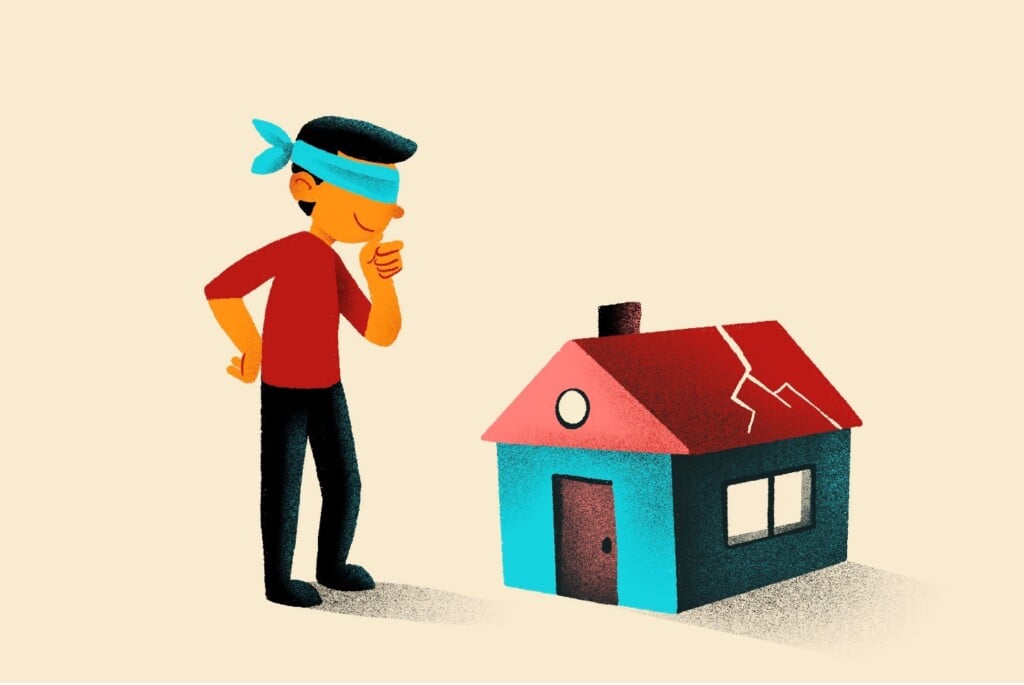What are the risks of Waiving the Home Inspection ?
In continuing the topic of the May 2024 article, Why can’t the Buyer do a Home Inspection?, what are the risks of waiving a Home Inspection?

The Cons of Waiving a Home Inspection
In the competitive real estate market, buyers often feel pressure to make their offers as attractive as possible. One way some buyers try to stand out is by waiving the home inspection contingency. While this can expedite the purchasing process and make an offer more appealing to sellers, it carries significant risks. Here are the primary cons of waiving a home inspection:
- Unforeseen Structural Issues
Home inspections are crucial for identifying structural problems that are not immediately apparent. Inspectors check the foundation, roof, walls, and other critical components of a home. Without an inspection, buyers might miss signs of structural damage, such as cracks in the foundation, roof leaks, or deteriorating support beams. These issues can be costly to repair and may compromise the safety and stability of the home. - Hidden Electrical and Plumbing Problems
Electrical and plumbing systems are complex and can have hidden problems that are not visible to the untrained eye. Home inspectors thoroughly check these systems to ensure they are functioning correctly. Waiving an inspection could result in undetected issues such as faulty wiring, outdated electrical panels, leaky pipes, or inefficient water heaters. Repairing or replacing these systems can be expensive and disruptive. - Pest Infestations
Pest infestations, such as termites, carpenter ants, or rodents, can cause significant damage to a home. Inspectors look for signs of pest activity and damage during their evaluations. Skipping this step means buyers might unknowingly purchase a home with an active infestation, leading to extensive repairs and pest control costs. - Health and Safety Hazards
Home inspectors also assess potential health and safety hazards. This may include checking for mold, asbestos, radon, and carbon monoxide. These hazards can pose serious health risks to occupants. Without an inspection, buyers might move into a home with dangerous conditions that require immediate and costly remediation.
- Potential for Higher Long-Term Costs
While waiving an inspection might save money upfront and expedite the buying process, it can lead to higher long-term costs. Unidentified issues often require expensive repairs that could have been negotiated with the seller if discovered during an inspection. Additionally, the buyer may need to invest in upgrades to bring the home up to modern standards, further increasing expenses. - Reduced Bargaining Power
A home inspection report provides buyers with leverage to negotiate repairs or a lower purchase price based on the findings. Without this report, buyers lose a critical tool for negotiation. They may end up paying more than the home is worth, especially if significant issues are discovered after the purchase. - Potential Impact on Resale Value
If significant problems are discovered after the purchase, the home’s resale value could be affected. Future buyers may be wary of purchasing a home with a history of issues, or the current owner may need to invest in repairs and upgrades to make the property marketable. This can result in lower returns on investment when it’s time to sell.
Conclusion
Waiving a home inspection may seem like a strategic move in a hot real estate market, but it comes with considerable risks. Buyers should weigh these potential downsides carefully.
Investing in a home inspection can provide peace of mind, protect one’s financial investment, and ensure the long-term safety and habitability of the property.
For those looking to make a competitive offer, there are other strategies to consider that do not involve sacrificing this critical step in the home-buying process.
For any questions on this topic, please call Oscar Libed of Inspect Hawaii at 808-728-5707 or send an email to oscar@inspecthawaii.com







